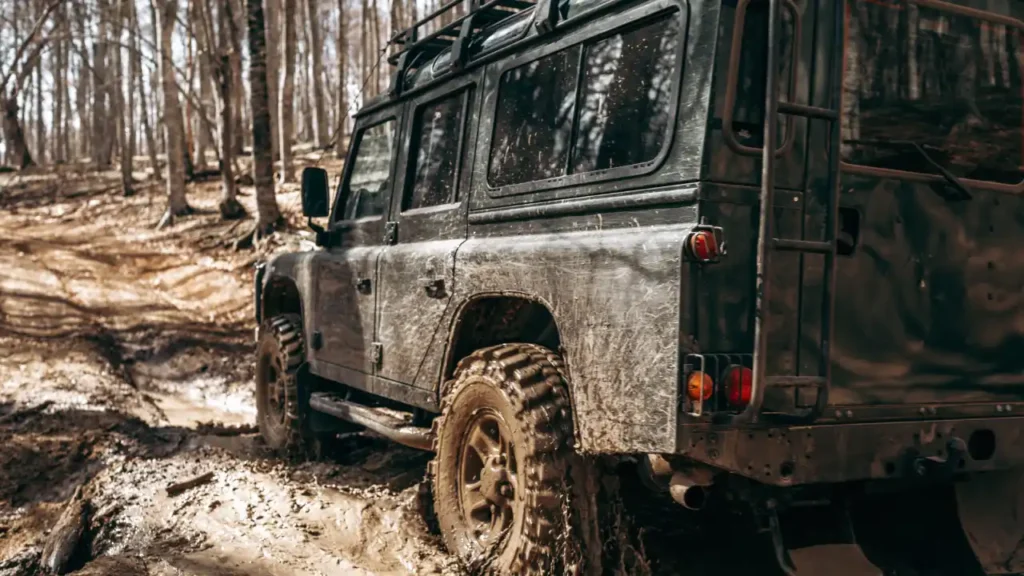
Free monthly entries to ALL giveaways
+1 every month
+5 every month
+10 every month
5%
125
150
350
100
100
50
Cancel membership anytime
Terms apply
apply
Written by
Admin
Published
August 20, 2024
Off-roading is an exhilarating pastime that unites adventure-seeking Australians with the rugged beauty of the Outback and other remote locations. However, the isolation that comes with charting pathways less traveled also brings unique challenges and potential hazards. With careful preparation and a respect for the unpredictable, off-roading enthusiasts can ensure a thrilling and safe experience as they traverse the wilds. Here we delve into essential safety tips for remote off-roading, providing insights and strategies for preparing for the unexpected.
The cornerstone of remote off-roading safety is a thorough understanding of your vehicle’s capabilities and limitations. The latest trend for many enthusiasts is to invest in a 4WD with advanced attributes such as improved ground clearance, robust suspension, and a powerful engine capable of scaling rough terrains. Data from off-roading forums and automotive publications indicate a growing preference for models like the Toyota Land Cruiser, known for reliability, or the Jeep Wrangler, famed for its ruggedness.
Equipping your vehicle with suitable off-road tires, a winch, recovery gear, and protective accessories is crucial. Statistics reveal that the probability of vehicle recovery in remote areas is significantly reduced, so self-sufficiency is vital. The installation of skid plates protects your undercarriage from rocky terrain, while differential lockers enhance traction. In the market sphere, there’s been a surge in the sale of portable tire inflators and deflators, reflecting their important role in tire pressure management to tackle different surfaces efficiently.
Even the most seasoned off-roaders can fall victim to disorientation in the vast Australian landscape. The integration of satellite navigation systems is rising in off-road communities, with a 2021 survey indicating that over 75% of off-roaders use some form of GPS technology. Yet, reliance on such technology should not be absolute. Carrying physical maps and a reliable compass, and possessing the knowledge to use them, can be lifesaving if technology fails.
Communication can mean the difference between timely rescue and perilous delay. In remote zones where mobile signals are weak or nonexistent, the importance of satellite phones and high-frequency (HF) radios becomes apparent. Usage data from emergency services shows a consistent reliance on these devices for establishing contact in desolate locations. Additionally, a well-programmed emergency beacon or personal locator beacon (PLB) can broadcast a distress signal even when you’re far from the nearest phone tower.
In preparation for potential emergencies, stocking your vehicle with survival essentials is non-negotiable. This includes ample water – at least 5 liters per person per day – preserved food supplies, a comprehensive first-aid kit, and a fire extinguisher. Adding to the kit, thermal blankets, shelter materials, and a means to create a fire for warmth and signaling help are indispensable.
Historically, many accidents in remote areas have been exacerbated by a lack of preparedness. Studies show that having a pre-departure checklist that includes checking the mechanical condition of your vehicle, notifying someone of your itinerary, and being aware of prevailing weather conditions can drastically improve safety outcomes. Off-roading clubs and safety courses can provide extensive training, and participation in these has risen in the past decade, as more adventurers seek to educate themselves.
In conclusion, remote off-roading offers unmatched excitement and the opportunity to connect with the untouched wilderness of Australia. By rigorously preparing for potential scenarios, equipping yourself with the necessary gear, and embracing smart safety practices, you can ensure that every journey is as safe as it is memorable. Remember, when you’re miles from help, self-reliance isn’t just a quality – it’s a necessity.